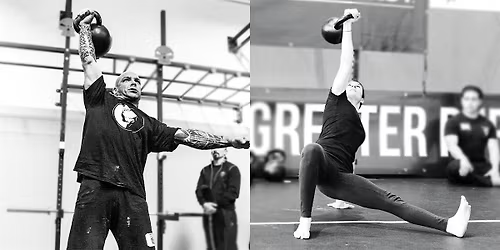
About this Event
The SWFS planning committee cordially invites you to attend the 2026 Meeting of the Society for Wildlife Forensic Sciences, which will be held in Charleston, South Carolina, USA, from Friday, March 20, 2026, through Thursday, March 26, 2026.
Charleston offers a temperate climate, exceptional culinary experiences, and a rich array of culture, history, entertainment, and natural beauty. Travel + Leisure magazine recently ranked Charleston as the #1 city in the U.S. for the twelfth consecutive year, and it consistently ranks among the premier U.S. destinations for visitors.
We eagerly anticipate your presence in Charleston in March 2026.
*Please note that early registration ends on 2 January 2026 and ticket prices will increase by $50 USD.
You can attend the following workshops for an additional fee:
Ivory Identification Workshop and Proficiency Test
2 days (Proficiency Test can be taken separately)
Instructors: USFWS (Barry W. Baker & Eileen Larney)
This workshop will teach the attendees how to identify the taxonomic source of an ivory object or tusk using morphological analysis. It will cover the major taxa in the ivory trade including elephants and mammoth, walrus, hippopotamus, toothed whales, warthog and pigs, bone, and synthetic materials that resemble ivory.
The two-day workshop will consist of one and a half days of training to include lectures and practical examination of ivory objects. The last half day will consist of a practical proficiency test of three items. Upon successful completion, attendees will receive a SWFS certificate of proficiency on ivory identification.
Those who have taken this workshop in the past and only wish to take a current proficiency may do so.
The workshop will be limited to 30 participants.
Materials that will be provided:
1. Handheld UV light
2. Handheld magnification lens
3. Protractor
4. Copy of ‘Identification Guide for Ivory and Ivory Substitutes’
5. USB with associated reference materials
Microscopy for Wildlife Forensics
1 day
Instructors: Sandra Koch (NIST), Steve Morton (NOAA)
Description: This workshop will cover the basics of microscopy and its use in wildlife forensic examinations. Through practical, hands-on sessions, participants will learn how to optimize a compound microscope for analysis, prepare samples and scale casts, and review the characteristics useful for classifying animal hair and feathers.
Workshop highlights
Introduce the theory, techniques, and proper operation of a stereomicroscope, polarized light microscope, comparison microscope, fluorescence filters and alternate lighting, and scanning electron microscope including:
- Location and function of microscope components
- Use of a stage micrometer and eye piece reticle for measurement calibration.
- Proper set up and operation of each type of microscope and its accessories, including making adjustments, and diagnosis of problems
- Understand the strengths and limitations of each type of microscope
- Centering microscope stages and objectives
- Proper illumination and alignment, to include Köhler or modified Köhler illumination
Gain hands-on experience in the examination and analysis of common wildlife-related trace evidence, including:
- Key characteristics for classification of animal hairs and feather evidence
- Cross-sectioning techniques
Forensic Photography
1 day
Instructors: Meagan Raddatz, University of Central Oklahoma
This hands-on workshop guides participants through the essentials of forensic photography, from mastering manual mode and equipment standards to advanced imaging techniques like alternative light sources (ALS), Ultraviolet and Infrared (UV/IR), and 3D scanning. The course also explores specialized contexts such as wildlife scenes, latent prints, bloodstains, and underwater evidence, preparing attendees to capture clear, court-admissible images in any investigative setting.
Stable Isotope Analysis/Chemistry Workshop
1/2 day
Instructors: Chloe Hatten, University of Hong Kong +TBA
This half-day workshop will introduce the use of chemistry in wildlife crime investigations, with a particular focus on stable isotope analysis (SIA). The first half will provide participants with a background on the methods commonly available, and cover aspects from data-handling, equipment, and data-analysis, including some of the limitations and challenges in applying chemical analyses to wildlife forensic applications. The second half will be more practical, guiding participants to think and apply the use of chemical analyses, such as SIA, to their knowledge of their own systems and taxa, as well as a hands-on tutorial on SIA data analysis.
How to set up an internal proficiency test
1/2 day
Instructors: Lucy Webster (SASA), Gila Kahila Bar-Gal (The Hebrew University of Jerusalem) Marli de Bruyn (SANBI) and Greta Frankham (Australian Museum)
Demonstrating that staff who carry out forensic examinations or tests in criminal cases are competent to do the work is essential for forensic laboratories, and one way to do this is for staff to carry out regular proficiency tests (PTs). The gold standard PT would be externally run by a provider accredited to ISO:17043; but these are not widely available for wildlife forensic disciplines. Sharing samples from rare and endangered species internationally adds an extra level of complication which can be difficult to overcome.
All is not lost! It is possible to set up Internal PTs to a standard that will be accepted by accreditation bodies in the absence of these gold standard PTs. In this workshop we will use the European Network of Forensic Institutes (ENFSI) Guidance on the conduct of Proficiency Tests as a framework, and include examples from morphology as well as DNA sequencing and STR analysis to help participants devise their own internal PTs.
Who is it for? – Wildlife forensic scientists working in the fields of morphology or DNA analysis who need to set up an Internal PT that will demonstrate competence in their forensic casework.
What if I don’t carry out casework yet? – If you are keen to learn more about the competencies required to work in a wildlife forensic lab, this workshop may also be useful for you.
What will I gain from this workshop? – The workshop will start with some short lectures, using examples from various labs at different stages of development. Towards the end of the session, participants will be encouraged to draft their own internal proficiency test, using a template which we will provide, and identify any concerns to be addressed prior to implementation in their Quality Management System.
SWFS will have three roundtable discussions. These are free to attend however space is limited so we ask that you register for the ones you plan to attend.
NGS in wildlife forensics part 2 roundtable
Conveners: Kyle Ewart (TRACE), Piper Schwenke (NOAA), Nina Zindel (University of Zurich) Kelly Meiklejohn (University of Western Sydney)
High-throughput technologies are playing an increasingly important role in forensic science. Developing appropriate standards and workflows for the wildlife forensic community is an emerging priority. This roundtable builds on the 'Validation of NGS Methods for Casework' roundtable held at SWFS 2024, and will focus on several key issues that were discussed, including what standards should look like and workflows for validating new high-throughput assays in wildlife forensics. Newcomers to the conversation are welcome!
DNA extraction Roundtable
Conveners: Gila Kahila Bar-Gal (The Hebrew University of Jerusalem), Kathy Moore (NOAA), Greta Frankham (Australian Museum)
Have you ever been asked to extract DNA from a tricky starting material? Chances are, the answer is a resounding “yes;” SWFS labs around the world encounter a wide and challenging range of seized material, garnering expertise in extracting DNA across a spectrum of materials from wood to leather.
Come along to share your successes and failures and pick the brains of others in regards to DNA extraction methods, kits, and reagents that others have used successfully (or not).
SWFSbase Roundtable
Conveners: Kyle Ewart (TRACE)
Forensic genetic species identifications rely on comparisons to known reference sequences. However, reference data is often incomplete, error-prone or unsuitable for forensic analysis. Access to robust, quality-assured reference databases remains one of the key challenges in the field. To address this, SWFS is launching a new initiative in 2026 called 'SWFSbase'. SWFSbase is a secure BLAST server and associated curated reference database specifically for use by wildlife forensic analysis. This roundtable will introduce the platform, demonstrate its use, and discuss how users can become involved.
SWFS 2026 Tentative Schedule
Event Venue & Nearby Stays
Francis Marion Hotel, 387 King Street, Charleston, United States
USD 0.00 to USD 668.77












